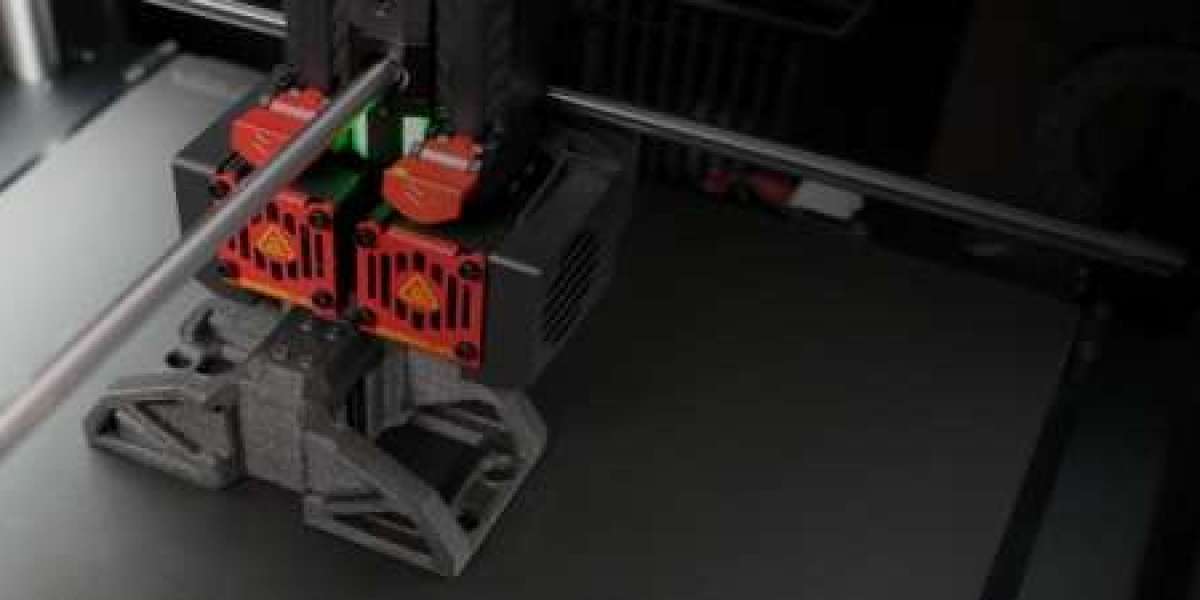According to a report released by the China Business Industry Research Institute, the scale of China's 3D printing market will be about 32 billion yuan in 2022, a year-on-year increase of 20.75%. The market size has reached 36.7 billion yuan in 2023, and is expected to climb to 41.5 billion yuan in 2024. Globally, the 3D printing market size reached 3.45 billion US dollars in the second quarter of 2024, a year-on-year increase of 8.4%. Despite the challenge of slowing hardware sales, the growth of 3D printing services has effectively offset this impact, showing the industry's strong resilience. In addition, Shenzhen has included "3D printers" in the national subsidy category, and the data from the General Administration of Customs showed that China's 3D printer exports exceeded the whole of last year. Hot events such as the further highlighting of the vigorous vitality and broad prospects of the 3D printing industry.

In this wave of enthusiasm, circular guide rails, as key components of 3D printing equipment, are becoming increasingly important. Circular guide rails are a cylindrical guide rail system that can be used in conjunction with linear bearings and linear shafts to achieve precise planar installation. They are not only easy to install but also space-saving. In the 3D printing process, the circular guide rail carries the movement of the print head, and its performance directly affects the accuracy, speed and stability of printing. A high-quality circular guide rail system can ensure the precise positioning of the print head in three-dimensional space and achieve precise construction of complex structures, which is the key to ensuring printing quality.

Hithunder's new carbon fiber circular guide is designed to meet the 3D printing industry's higher requirements for lightness, load, stiffness, precision and finish. As a high-performance material, carbon fiber has become an ideal choice for improving the performance of 3D printing equipment due to its extremely low density, extremely high strength and modulus, as well as excellent fatigue resistance and dimensional stability. With the support of carbon fiber beam, the Z axis has high load and light weight, which greatly reduces resonance and deflection errors; the X axis guide is lightweight, fatigue-resistant and has small deformation, which significantly improves the printing accuracy to ±0.2mm or higher . These improvements not only increase processing speed, but also maintain high-precision operation for a long time, bringing revolutionary changes to the 3D printing industry.

In addition, the application of carbon fiber materials has significantly reduced the weight of the moving parts of the equipment, thereby saving 30% to 60% of energy consumption. This is undoubtedly a huge boon for the modern manufacturing industry that pursues high efficiency and energy conservation. In an environment of long-term continuous operation, the excellent fatigue resistance and dimensional stability of the carbon fiber guide rail ensure that the printing equipment maintains high-precision operation for a long time, improves product consistency and customer satisfaction, and brings practical benefits to the company. Real economic benefits.
In general, the application of carbon fiber beams and circular guides in the 3D printing industry is not only a disruptive innovation of traditional materials, but also a key driving force for promoting the development of 3D printing technology to a higher level. It not only meets the industry's strict requirements for lightweight, high load, high rigidity, high precision and smoothness, but also brings tangible economic benefits to enterprises by saving energy and reducing consumption and improving production efficiency, helping the 3D printing industry to move forward. Towards a more efficient and intelligent future.








